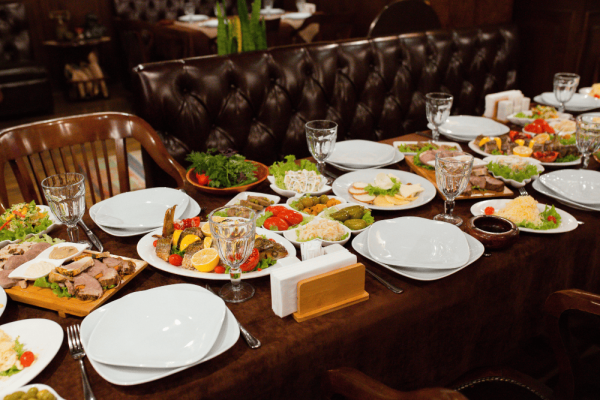In recent years, the culinary landscape has witnessed a significant shift towards plant-based dining options. Among these, vegan and vegetarian halal buffets have emerged as a vibrant and inclusive trend, reflecting the growing demand for diverse, ethical, and health-conscious food choices. As a seasoned content writer with an eye on culinary trends, I’m excited to delve into the phenomenon of these innovative dining experiences.
Embracing Diversity: The Evolution of Halal Buffets
Halal dining traditionally encompasses meat-based dishes prepared according to Islamic dietary laws. However, with changing dietary preferences and a heightened awareness of sustainability and animal welfare, the concept of halal dining has expanded to include plant-based options.
The rise of vegan and vegetarian halal buffets represents a convergence of cultural, ethical, and health considerations. These buffets offer a unique opportunity to cater to diverse dietary needs while promoting inclusivity within the Muslim community and beyond.
Ethical Dining: The Intersection of Halal and Plant-Based
One of the driving forces behind the popularity of vegan and vegetarian halal buffets is the alignment of ethical principles. Halal dietary guidelines emphasize compassion and respect for animals, mirroring the values underlying plant-based lifestyles. By offering halal-certified plant-based options, these buffets cater to diners seeking ethical dining choices that align with their values.
Moreover, the inclusion of plant-based options in halal buffets reflects a broader shift toward sustainability and environmental consciousness. Plant-based diets have been touted for their reduced environmental impact, making them a natural fit for halal dining establishments committed to promoting responsible consumption practices.
Health and Wellness: Nourishing Body and Soul
In addition to ethical considerations, the rise of vegan and vegetarian halal buffets is driven by growing health awareness among consumers. Plant-based diets have been linked to numerous health benefits, including lower risks of chronic diseases such as heart disease, diabetes, and certain cancers.
By offering a wide array of plant-based dishes, halal buffets empower diners to make healthier choices without compromising on taste or cultural authenticity. From hearty lentil stews to flavorful chickpea curries, these buffets showcase the versatility and richness of plant-based cuisine, appealing to both vegans and omnivores alike.
Culinary Innovation: Redefining Halal Dining Experiences
The emergence of vegan and vegetarian halal buffets has sparked a wave of culinary innovation, challenging chefs to reimagine traditional dishes with plant-based ingredients. From plant-based renditions of classic meat dishes to inventive fusion creations, these buffets showcase the creativity and adaptability of halal cuisine.
Moreover, the rise of social media has played a pivotal role in popularizing vegan and vegetarian halal buffets, with influencers and food bloggers sharing mouthwatering photos and rave reviews. This digital exposure has helped raise awareness and generate excitement around these innovative dining experiences, driving foot traffic and fostering a sense of community among diners.
Conclusion: Embracing a Greener, More Inclusive Future
In conclusion, the rise of vegan and vegetarian halal buffets represents a culinary revolution driven by a convergence of ethical, health, and culinary considerations. By offering diverse plant-based options that are halal-certified, these buffets cater to a growing demand for inclusive, sustainable dining experiences.
As consumers increasingly prioritize health, ethics, and environmental sustainability, the popularity of vegan and vegetarian halal buffets is poised to continue its upward trajectory. By embracing diversity and culinary innovation, these buffets are not only reshaping the halal dining landscape but also paving the way toward a greener, more inclusive future for food.



